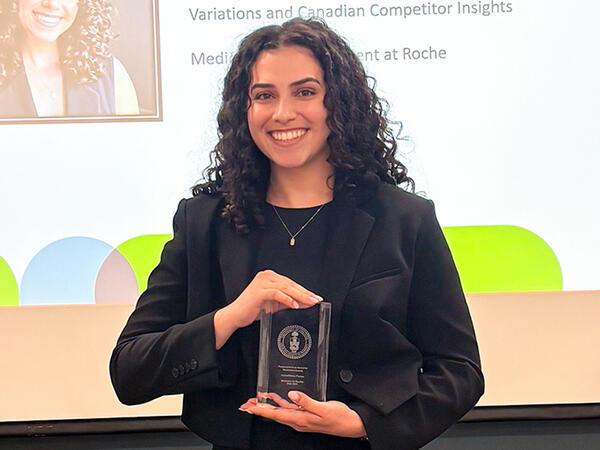Muhammad Mamdani understands why people are wary of artificial intelligence having a say in their health care – but he’s even more concerned about the patients who are waiting to benefit from the potentially life-saving benefits of AI-assisted medicine.
As vice-president, data science and advanced analytics at Unity Health Toronto, Mamdani has overseen the implementation of more than 50 AI-powered solutions into clinical practice – from an early warning system that uses electronic medical records to predict a patient’s risk of death or requiring intensive care, to a brain-bleed detection tool that can help fast-track access to critical treatment.
And he says there’s more to come in 2024.
“I hope to see more AI being used for clinical decision making,” say Mamdani, who is a professor in the department of medicine in the University of Toronto’s Temerty Faculty of Medicine and the director of the Temerty Centre for Artificial Intelligence Research and Education in Medicine (T-CAIREM).
Yet, despite AI's potential to transform patient care, it isn’t a cure-all for the underlying problems in Canada’s health system, warns Mamdani, who holds cross-appointments in U of T’s Leslie Dan Faculty of Pharmacy and the Institute of Health Policy, Management and Evaluation at the Dalla Lana School of Public Health.
Mamdani recently spoke to U of T News about how AI will – and won’t – shape health care in 2024.
More News
Image

Research team aims to co-design diabetes and dementia support programs that meet community needs
Network for Health Populations funding will support collaborative project to improve health outcomes for immigrant communities in Mississauga.
Read More
Image

Pharmaceutical industry resident finds growth in new challenges
Pharmaceutical Industry Residency Program Award recipient AnnaMaria Passas gained new skills through residency and research project to improve marketability in industry.
Read More
Image

Pharmacy alum sees change in acceptance of Indigenous cultures in health care
During Deborah Emery’s 40-year pharmacy career, she provided care in Sioux Lookout, Thunder Bay and Manitoulin Island.
Read More
